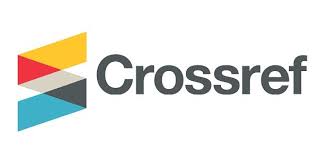Konstruksi Pajak Lingkungan di Indonesia
DOI:
https://doi.org/10.33061/wh.v25i2.2992Keywords:
Tax Environment, Environment, Sustainable Development.Abstract
Environmental tax assessment as an environmental economic instrument is still rare. So far, environmental law studies have been limited to analyzes of administrative violations and criminal actions against the environment, which tend to be repressive. This action is also considered less effective to overcome environmental problems that increasingly apprehensive. Some research suggests, the application of environmental taxes can be used as a preventive measure against environmental damage. In 2006 Indonesia has planned the implementation of environmental taxes, but to date has not been implemented. This is due to differences of opinion due to the absence of a definite application concept. Therefore, there is a need for research on the construction of environmental taxes, based on the Undang-Undang Perlindungan dan Pengelolaan Lingkungan Hidup (UUPPLH), which includes environmental economic instruments, one of them through the application of taxes. Based on this, environmental taxes should be designed as a source of fund management and addressing environmental issues for sustainable development. This is based on the important role of economic aspect in environmental management.
Â
References
Akib, Muhammad, Penegakan Hukum Lingkungan dalam Perspektif Holistik-Ekologis, Yogyakarta: Graha Ilmu, 2015.
Al-Qaradhawi Yusuf, Islam Agama Ramah Lingkungan, Jakarta Timur: Pustaka Al-Kautsar, 2002.
Amin Abdullah, 1994, Falsafah Kalam di Era Post Modernisasi, Pustaka Pelajar, Yogyakarta.
Amin Abdullah, 2005, Studi Agama Era Multicultural-Multiriligius, PSAP, Yogyakarta.
Andri G. Wibisana, “Konstitusi Hijau Perancis: Komentar atas Asas Kehati-hatian dalam Piagam Lingkungan Perancis 2004â€, Jurnal Konstitusi, Volume 8, Nomor 3, Juni 2011 ISSN 1829-7706.
Bawazier, Fuad, “Reformasi Pajak di Indonesiaâ€, Jurnal Legislasi Indonesia Vol. 8 No. 1, Jakarta Selatan: Direktorat Jenderal Peraturan Perundang-Undangan dan Hak Asasi Manusi RI, 2011.
Bethan, Syamsuharya, Penerapan Prinsi Hukum Pelestarian Fungsi Lingkungan Hidup dalam Aktivitas Industri Nasional, Bandung: PT. Alumni, 2008.
Devano, Sony dan Rahayu, Siti Kurnia, Perpajakan Konsep, Teori, dan Isu, Jakarta: Kencana, 2006.
Dispute Setlemenâ€, Makalah Seminar Nasional tentang Qua Vadis UU Lingungan Hidup di Era Otonomi Daerah, Pusat Studi dan Konstitusi UIN Sunan Kalijaga, 16 Desember 2016.
Freestone, David & Ellen Hey. 1996. Originsand Development of the Precautionary Principle, dalam The Precautionary Principle and International Law, The Challenge of Implementation. Hague: Kluwer Law International.
Greenpeace Indonesia, “Konsekuensi Tersembunyi: Valuasi Kerugian Ekonomi Akibat Pencemaran Industriâ€, http://www.greenpeace.or, diakses 9 Maret 2017.
Hamzah, Andi, Penegakan Hukum Lingkungan Environmental Law Enforcement, Bandung: P.T. Alumni, 2016.
Hanum, Cholida “Green Constitution di Indonesia Perspektif Ketatanegaraan dan Siyasah Dusturiyyahâ€, Skripsi, Fakultas Syariah dan Hukum UIN Sunan Kalijaga Yogyakarta, 2014.
Helmi, 2012, Hukum Perizinan Lingkungan Hidup, Sinar Grafika, Jakarta.
Herry Suoryono, 2016, “Pengelolaan Konflik Dan Penyelesaian Sengketa Lingkungan (Enviromental
Kajian Cepat Terhadap Kesiapan Indonesia Menuju Reformasi Fiskal Lingkungan Hidup untuk Penghijauan Ekonomi†, Draf Akhir Reformasi Fiskal, 2011.
Maharani, Leny Agustin, “Bisakah UU No. 23 Tahun 1997 Melahirkan Pajak Lingkungan Sebagai Instrumen Eksternalitas?â€, http://www.kompasiana.com, diakses pada 4 Oktober 2016.
Makarao, Mohammad Taufik, Aspek-Aspek Hukum Lingkungan, Jakarta: PT Indeks, 2011.
Naimah, Indana Khaira, “Studi Penerapan Pajak Lingkungan: Indonesia, Belanda, Amerika, dan Cinaâ€, Skripsi, Fakultas Ekonomi dan Bisnis, Universitas Gadjah Mada, 2008.
Nugroho, Wahyu, “Konsistensi Pemerintahan Daerah Atas Penerapan Desentralisasi Bidang Lingkungan Hidup Dalam Perundang-Undangan Lingkungan Hidup Berbasis Hukum Progresifâ€, Jurnal Legislasi Indonesia Vol. 11, No. 2, Jakarta, 2014.
Prastyo, Teguh, dan Purnomosidi, Arie, Membangun Hukum Berdasarkan Pancasila, Bandung: Nusa Media, 2014.
Rahardjo, Satjipto, Penegakan Hukum Progresif, Jakarta: PT. Kompas Media Nusantara, 2010.
Rahmadi, Takdir, Hukum Lingkungan di Indonesia, Jakarta: Raja Grafindo Persada, 2014.
Septiviani, Cita, “Penetapan Nilai Pajak Lingkungan Untuk Industri Tekstik (Studi Kasus: PT. Unitex Bogor)â€, Skripsi, Institut Pertanian Bogor, 2009.
Syaputra, Deny, “Manifestasi Nilai-Nilai Pancasila dan Production Sharing Contract (PSC) Guna Mewujudkan Kesejahteraan Sosial Melalui Kedaulatan Minyak dan Gasâ€, Jurnal Panggung Hukum Vol. 1, No. 1, PERMAHI, Yogyakarta, 2015.
Usy, Firda, “Kerusakan Lingkungan Hidupâ€, http://www.kompasiana.com/ , diakses 9 Mei 2017.
Wardhana, Wisnu Arya, Dampak Pencemaran Lingkungan Edisi Revisi, Yogyakarta: Andi Offset, 2004.
Wibisana, G. Andri, 2006, Theree Principles of environmental law: The Polluter-Pays Principle, The Principle of Prevention, and the Precautionary Principle, dalan Michael & Nicole Niessen (udited) environmental law in Development, Lesson from the Indonesia Experince, Cheltenham UK-Nothampon, MA, USA: Edward Elgar Publishing.
Yafie, Ali, Merintis Fiqh Lingkungan, Jakarta Selatan: Ufuk Press, 2006.
Downloads
Published
How to Cite
Issue
Section
License
Authors who publish with this journal agree to the following terms:
- Copyright on any article is retained by the author(s).
- The author grants the journal, the right of first publication with the work simultaneously licensed under a Creative Commons Attribution License that allows others to share the work with an acknowledgment of the work’s authorship and initial publication in this journal.
- Authors are able to enter into separate, additional contractual arrangements for the non-exclusive distribution of the journal’s published version of the work (e.g., post it to an institutional repository or publish it in a book), with an acknowledgment of its initial publication in this journal.
- Authors are permitted and encouraged to post their work online (e.g., in institutional repositories or on their website) prior to and during the submission process, as it can lead to productive exchanges, as well as earlier and greater citation of published work.
- The article and any associated published material is distributed under the Creative Commons Attribution-ShareAlike 4.0 International License
















.png)


